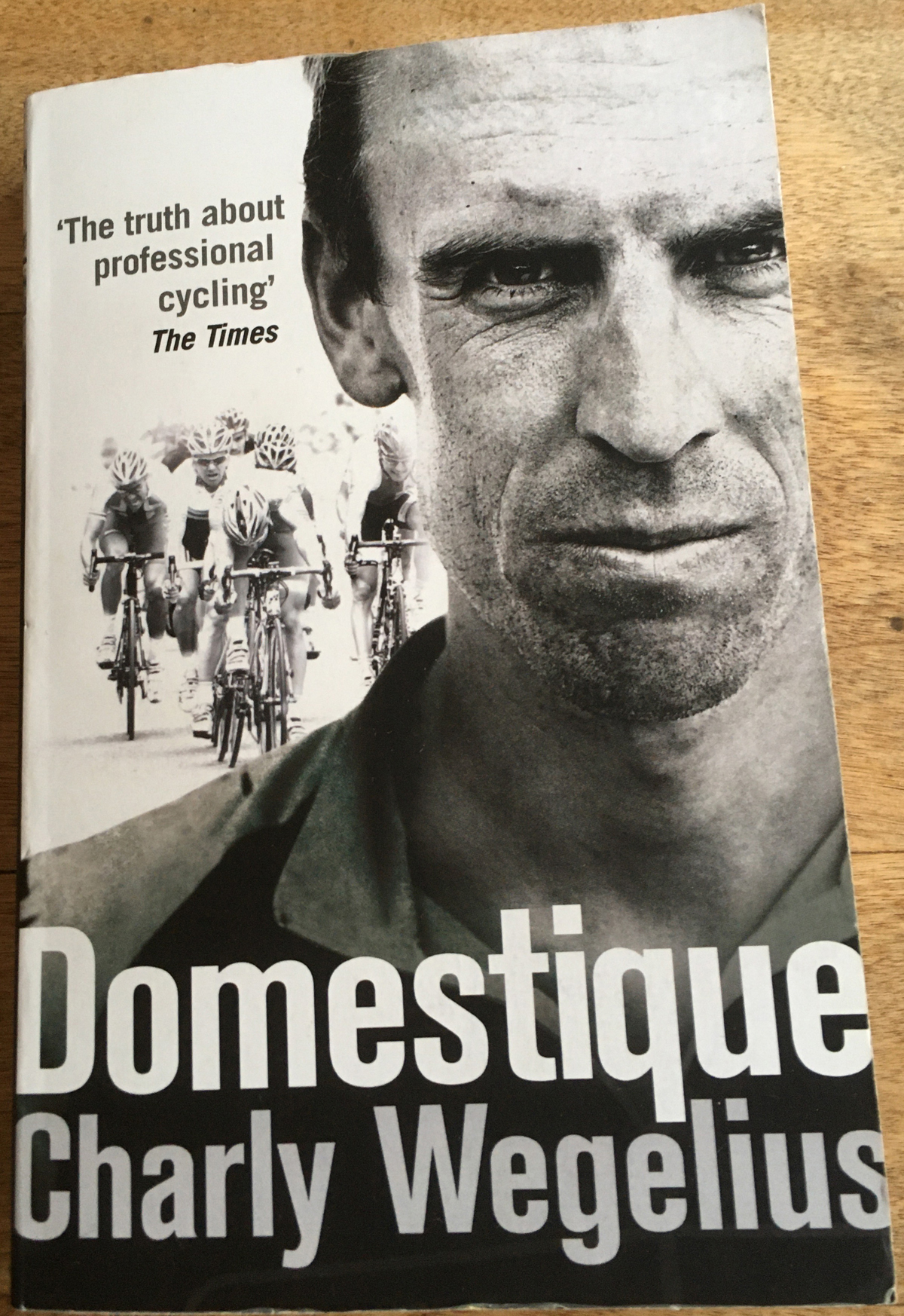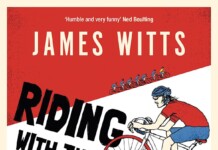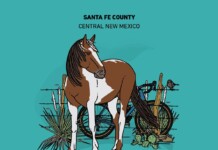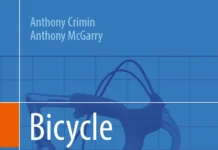By Lou Melini — Perhaps you remember a stage in the Tour de France when a breakaway group of riders had an eight-minute advantage with 20 kilometers to the finish only to be caught with 500 meters left. That accomplishment to “close the gap” was the work of the domestiques leading their team captains to the finish line. Englishman Charly Wegelius (weg-he-lee-oos) describes his 11 years as a professional rider in his book, Domestique. Mr. Wegelius makes a clear point in the book that he was a professional domestique, not unlike the role of a sprinter or team leader. Once established in his role, he had his services sought after by many teams. If you are ever unclear of the term domestique in professional bike racing, read Charly Wegelius’ book.

Mr. Wegelius raced in 14 Grand Tours (Tour de France, Giro de Italia, and Vuelta a España). In a manner characteristic of British humor, Charly describes his first grand tour at the “Vuelta” (he never calls the race by its full name). He uses profanity widely through in the book, something I usually find takes away from good storytelling, but in this case it is simply Charly being Charly emphasizing his point in the writing. Below are a few excerpts from his grand tours.
Dinner: On 18 of the 21 days we were fed chicken with asparagus and half a boiled egg for dinner. Night after night I felt like weeping into my watery salad when the same awful food was dropped on to my table-at the time of day I’d normally expect to be asleep.
Racing: As soon as the flag had been dropped (to the sound of the f******g Vuelta theme song) the race was flat out. The average speed of one of the stages in the first week was 51.6 km/h, and the only reason it wasn’t faster was because there was a bloody great 6 km climb near the finish that brought the speed down a bit! At times it felt like madness; on one occasion we were doing 77 km/h on a flat road and I looked down at my 53.11 and wished I had bigger gears because I simply couldn’t pedal it fast enough.
A stage in the Giro de Italia: I dragged the group as hard as I could until, with 600m to go, I just exploded. I was so over the limit that I literally stopped at the 400m sign to hold on to the barriers. Later after the race: There was a knock at the door. Alvaro Crespi, the general manager of the team along with Damiani entered. The paranoid, worried side of me immediately thought that they were upset that we had lost the jersey. Crespi took a seat and said, Charly, are you happy in this team? Of course, I said. At that he pulled out an envelope and handed it to me. In it was a cash bonus of 5 million lire for my work that day. He also ripped up my 2-year contract and made a new one with a raise.
And so it went. The stories abound. Mr. Wegelius rode for the French amateur team Vendee U who were surprised when he showed up not knowing that he was invited to join the team. After a brief spell riding for British teams including the 3rd division professional Linda McCartney team as a stagiaire (an amateur riding on a pro team), Charly started his professional career with Mapei. Mapei was at the time the largest and perhaps most successful team in Europe. I think Mr. Wegelius to this day is still amazed that he started his career with this team.
After sponsorship by Mapei expired, Mr. Wegelius found himself on the DeNardi-Colpack team where finances were less secure, so much that he had concerns his back-up wheels were to be sold. After many years racing in Italy, Charly was finally “feeling at home” on yet another Italian team, Liquigas recruited by his former Mapei directeur sportif, Roberto Damiani. The team included Mario Cipollini and Danilo Di Luca, both high profile riders who Mr. Wegelius got along well with.
After 9 years riding for Italian teams, Mr. Wegelius decided to move out of Italy to Silence-Lotto. His job was to ride for Cadel Evans as his mountain domestique. The beginning of his relationship with Cadel Evans over dinner seemed like “a bad job interview”. The situation didn’t get much better. In his final year as a professional, Charly rode for the U.S. based United Healthcare team. In his last race of his career, he was in the lead with 800 meters to go, hoping for the first win of his career, he abandoned his role as a domestique. At 200 meters he had it in his head that he had to win. With 100 meters to go he was passed by 2 Spanish riders and in disappointment, stop pedaling finishing in third.
Domestique takes you into the world of Charly Wegelius, the world of bicycle racing and most importantly the world of domestiques that ride day in and day out to the point of exhaustion. To quote Mr. Wegelius, it’s no f*******g fairytale.
Charly Wegelius last rode as a professional in 2011, publishing the book 2 years later. Many of the teams he rode for and the personalities he rode with may not be remembered or known to the current crop of cyclists. This should not discourage someone from reading his book, as it probably is true today as it was during Charly’s career. It is clearly an interesting book that would be read quickly by anyone interested in professional bike racing. The writing is good and except for a few terms, mostly British, the average cycling fan should not get confused by the dialogue.
Domestique: by Charly Wegelius with Tom Southam (2013), Random House www.randomhouse.co.uk











